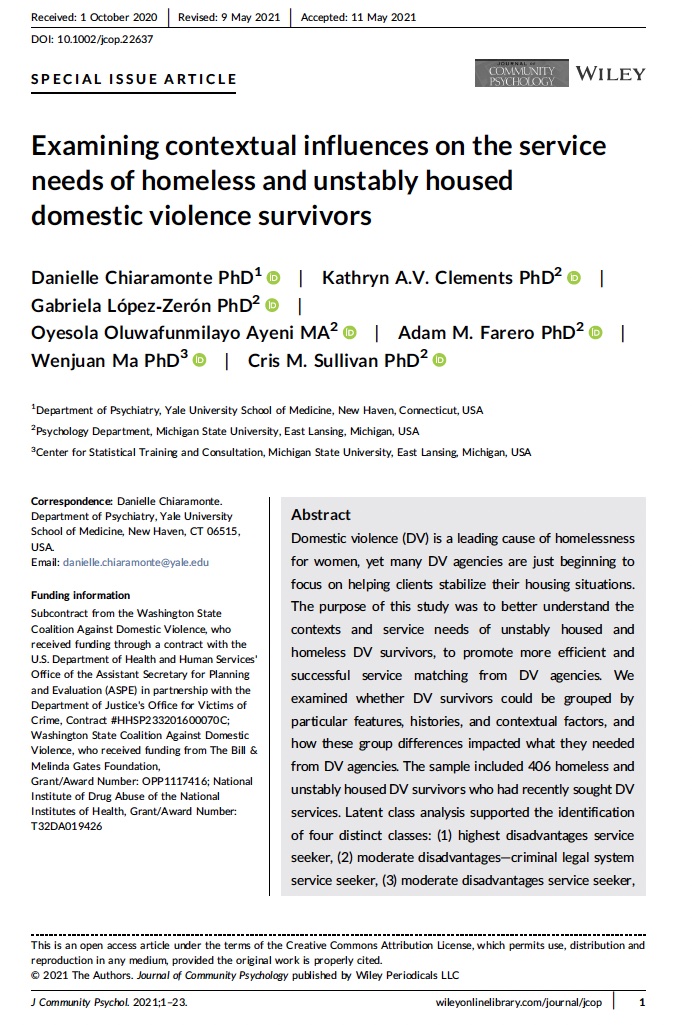Research
Examining Contextual Influences on the Service Needs of Homeless and Unstably Housed Domestic Violence Survivors

Domestic violence (DV) is a leading cause of homelessness for women, yet many DV agencies are just beginning to focus on helping clients stabilize their housing situations. The purpose of this study was to better understand the contexts and service needs of unstably housed and homeless DV survivors, to promote more efficient and successful service matching from DV agencies. We examined whether DV survivors could be grouped by particular features, histories, and contextual factors, and how these group differences impacted what they needed from DV agencies. The sample included 406 homeless and unstably housed DV survivors who had recently sought DV services. Latent class analysis supported the identification of four distinct classes: (1) highest disadvantages service seeker, (2) moderate disadvantages—criminal legal system service seeker, (3) moderate disadvantages service seeker, and (4) lower disadvantages service seeker. Additionally, we were able to profile each class, and test the types of services survivors in each class needed from agencies.





